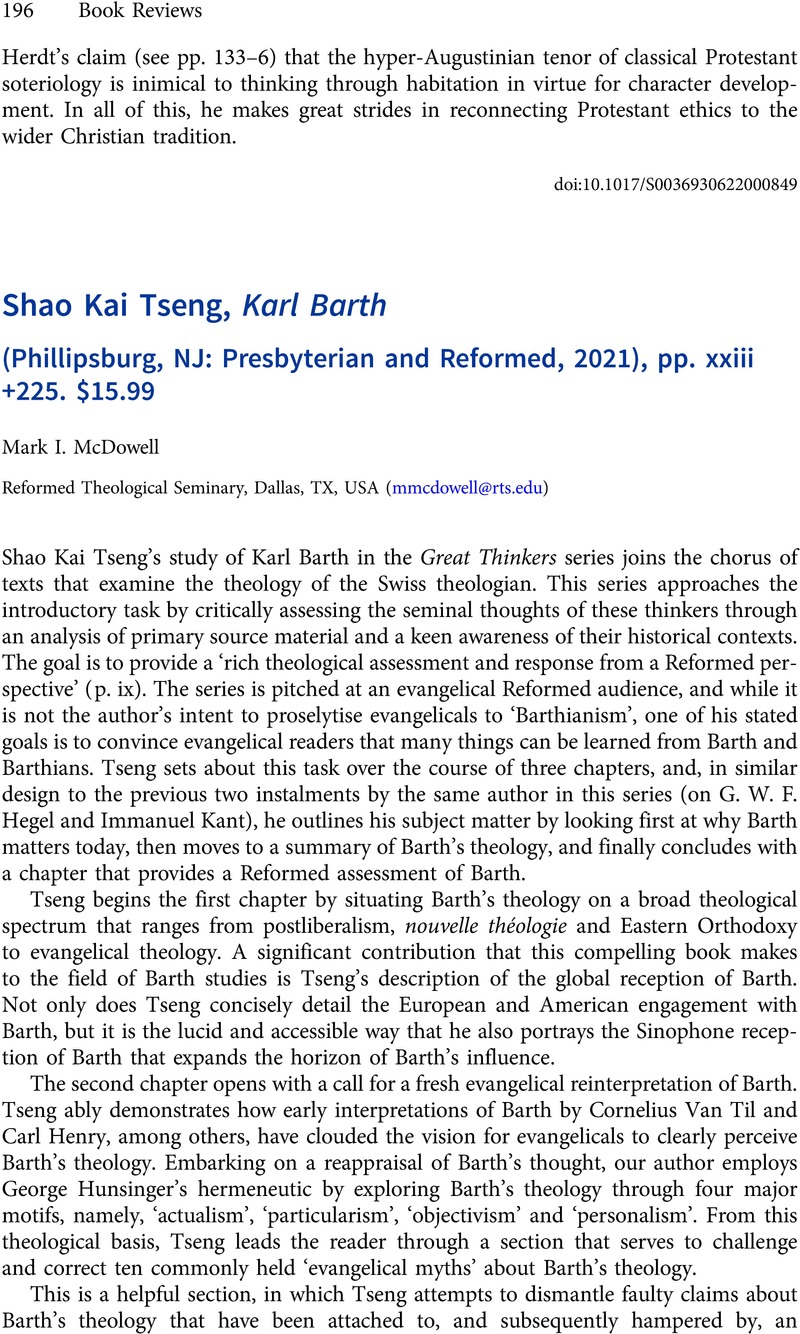No CrossRef data available.
Article contents
Shao Kai Tseng, Karl Barth (Phillipsburg, NJ: Presbyterian and Reformed, 2021), pp. xxiii +225. $15.99
Review products
Shao Kai Tseng, Karl Barth (Phillipsburg, NJ: Presbyterian and Reformed, 2021), pp. xxiii +225. $15.99
Published online by Cambridge University Press: 27 March 2023
Abstract
An abstract is not available for this content so a preview has been provided. Please use the Get access link above for information on how to access this content.

- Type
- Book Review
- Information
- Copyright
- Copyright © The Author(s), 2023. Published by Cambridge University Press



